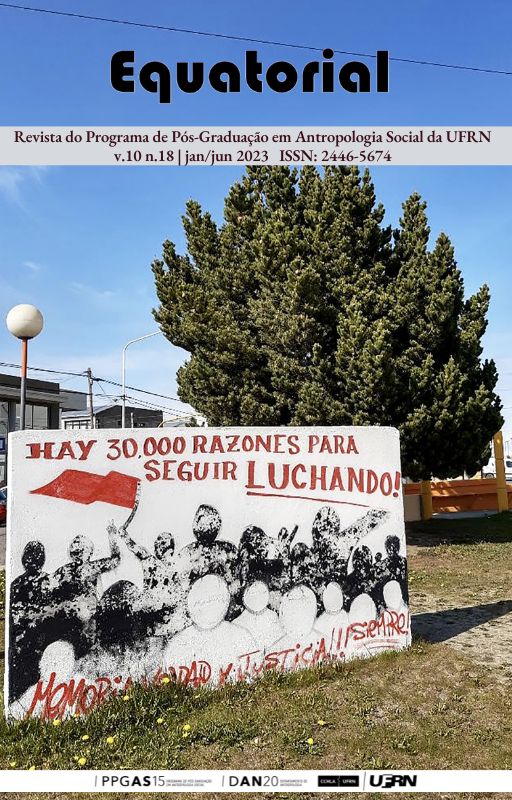Fruições emergentes entre Corpo(s), Sujeito(s) e Saúde
novas triangulações, outros empreendimentos
DOI:
https://doi.org/10.21680/2446-5674.2023v10n18ID30471Palavras-chave:
Corpo, Sujeito, SaúdeResumo
A resenha em tela visa apresentar novas triangulações acerca do debate sobre Corpo(s), Sujeito(s) e Saúde em uma perspectiva multidisciplinar. A obra resenhada é rica em termos de experiências e vivências trianguladas por vários profissionais, de campos de saberes diversos. A partir da resenha, espera-se aludir ao/à leitor/a que novos empreendimentos têm sido emergentes no campo da Ciências Sociais e Humanas, a partir de um debate cruzado que visualize o corpo-sujeito (ou sujeito-corpo) nos interesses relacionais e interacionais com a saúde.
Downloads
Referências
CSORDAS, Thomas. A corporeidade como paradigma para a antropologia. In: CSORDAS, Thomas. Corpo/Significado/Cura. Porto Alegre: Editora da UFRGS, 2008. p. 101−146.
HARAWAY, Donna. Saberes Localizados. Cadernos Pagu, n. 5, p. 7-41, 1995.
MALUF, Sônia Weidner. Por uma antropologia do sujeito: da Pessoa aos modos de subjetivação. Campos−Revista de Antropologia, v. 14, n. 1-2, p. 131-158, 2013.
MERLEAU-PONTY, Maurice. Fenomenologia da percepção. São Paulo: Martins Fontes, 1996.
SOUZA, Klédson Tiago Alves de; SOUZA, José Francisco das Chagas. Corpo-próprio: de corpo-objeto à corpo-sujeito em Merleau-Ponty. Problemata−Revista Internacional de Filosofia, v. 8, n. 2, p. 48-56, 2017.
Downloads
Publicado
Como Citar
Edição
Seção
Licença
Copyright (c) 2023 Yuri Tomaz dos Santos

Este trabalho está licenciado sob uma licença Creative Commons Attribution-NonCommercial-ShareAlike 4.0 International License.
Autores mantém os direitos autorais e concedem à revista o direito de primeira publicação, com o trabalho simultaneamente licenciado sob a Licença Creative Commons Attribution que permite o compartilhamento do trabalho com reconhecimento da autoria e publicação inicial nesta revista.

 Português (Brasil)
Português (Brasil) English
English Español (España)
Español (España)
